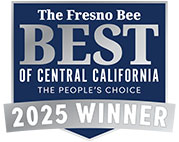The California General Education Transfer Curriculum (Cal-GETC) provides students
the ability to fulfill in-state, public university lower-division general education
requirements before transferring.
Although the certificate recognizes the completion of lower-division general education
requirements, it does not guarantee admission to a specific campus within the CSU
or UC systems, nor does it guarantee admission to a specific major. Some majors and
colleges may require a different lower division preparation and/or a higher GPA than
is necessary for this certificate. Students can use www.assist.org to review major
preparation courses and are advised to see a counselor for educational planning for
successful admission to the university of their choice.
With the exception of Laboratory Science (Area 5C), a single course can only be used
to satisfy one General Education requirement. A grade of “C” or better is required
in all courses.
Program Student Learning Outcomes
- Students will demonstrate critical thinking through analysis of literary works and written compositions.
- Students will develop the ability to develop, present, use, and critique quantitative arguments.
- Students will analyze and appreciate works of philosophical, historical, literary, aesthetic, religious and cultural importance.
- Students will gain a basic knowledge of the cultural and social organizations in which they exist as well as the behavior and social organizations of other human societies.
- Students will develop a comprehension of the basic scientific concepts of the physical and biological aspects of the world as well as an under-standing of science as a human endeavor including its limitations and power.
- Students will critically review how struggle, resistance, racial and social justice, solidarity, and liberation are relevant to current and structural issues
| Course # | Title | Units |
|---|---|---|
| Required Core Courses (33-41 Units) | ||
| Area 1A: English Composition | 3 | |
| Area 1B: Critical Thinking and Composition | 3 | |
| Area 1C: Oral Communication | 3 | |
| Area 2: Mathematical Concepts and Quantitative Reasoning | 3-6 | |
| Area 3A: Arts | 3 | |
| Area 3B: Humanities | 3 | |
| Area 4: Social and Behavioral Sciences (2 courses from 2 different disciplines) | 6 | |
| Area 5A: Physical Science | 3-5 | |
| Area 5B: Biological Science | 3-4 | |
| Area 5C: Laboratory (if not fulfilled with course from Area 5A or 5B) | 0-1 | |
| Area 6: Ethnic Studies | 3 | |
| Total | 33-41 | |
